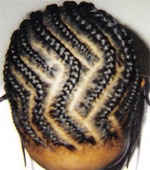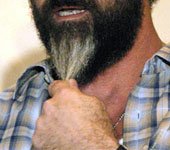This is in response to a post from earlier this week about technicians performing most or all of FUE procedures with a NeoGraft tool:
Specialty Techs are in nearly every aspect of medicine and they all are equally skilled in their own field. Phlebotomy, radiology and even hair transplant techs to name a few, all have to maintain a high level of skill and responsibility as they are dealing with the health and well being of a patient. The question is, who would you rather have working on you? A doctor with an MD behind his/her name who just took a weekend course in some new procedure or a highly skilled tech with 5 or 10 years of experience doing the same thing, day in and day out with a high level of pride and commitment.
With regard to the techs who operate NeoGraft…how is what they do any different than when they are handling, dissecting and transplanting human tissue from a strip method? If anything, NeoGraft is a “tool†which in “experienced hands†has the ability to offer fewer complications, lower rate of transaction, faster recovery times and an overall better procedural outcomes.
I would encourage those who throw around the term “surgery†when speaking about NeoGraft to exercise a little common sense because handling, dissecting and transplanting strip tissue should be considered “surgery†as well if you really think about it.
Personal Note: I have seen the techs that use the NeoGraft systems with my own eyes and every time I am extremely impressed with the level of skill, dedication and pride these individuals posses.
“FUE performed by non-physicians is a grey area and illegal in most states. Legally, a procedure where there is a cut on the skin requires an MD to do it. There are cases where a registered nurse or a PA (Physician’s Assistant) can perform certain tasks, but it has to be supervised by the physician. A surgical tech performing FUE is a dark grey area.â€
One more thing…I’m not sure where you get your information but it is completely inaccurate and misleading. Please provide everyone with just ONE state that mandates what you claim along with the link to the official state website where the rule is listed. Otherwise, please stop making things up.
 Thank you for your comments.
Thank you for your comments.
To put it simply, no matter how minor of a surgery (suturing a cut on the skin, making a cut on the skin, or even just giving a prescription pill or IV to a person) it requires some form of license issued by the state where the act is performed. You may not have to be a surgeon, but you have to have had some medical training and hold a license (nursing license, PA license, etc). A normal person off the street, no matter how talented, cannot perform FUE even if they are trained or are better than the surgeon at doing it.
The focus here should be the protection of the public. When the person who is doing the surgery has a license to do it, that means that they were officially trained and certified to do surgery in the state. I know that there are many, many doctors who perform hair transplant surgery and do not have a clue on what they are doing. Many of these doctors use technicians to perform almost every step in the surgical process (in their medical offices) and it would be clear that the technicians are more competent than the doctors they work for. But this is not an argument for allowing non-licensed people to perform surgery, but rather that we need some protection for the public when a doctor is not competent in delivering a surgical service, not in allowing non-licensed people to perform surgery. Unfortunately, an MD in almost every state in the United States can do any surgery he wishes (brain, heart, hair, etc..) and will only be held accountable when someone experiences irrevocable harm or death. It is insane that the only protection for the public against these doctors is our criminal system after the damage is done. One can look at the cardiologist who administered Propofol to Michael Jackson, who is being held accountable by the criminal justice system for manslaughter.
I have found two interesting situations where non-physicians have performed surgery (one good and one bad).
- Example 1: The incredible story of African American lab tech that wasn’t formally educated beyond high school, but became a pioneer in heart surgery and actually operated on white Americans in the 1940s: Vivien Thomas
- Example 2: Title of the post is self-explanatory: Non-Doctors Doing Hair Transplants?
 Now to the issue where you insist that I’m making things up, here’s the Medical Board of California’s Business and Professions code #2051: “The physician’s and surgeon’s certificate authorizes the holder to use drugs or devices in or upon human beings and to sever or penetrate the tissues of human beings and to use any and all other methods in the treatment of diseases, injuries, deformities, and other physical and mental conditions.” Emphasis mine. That’s just one of many examples that I found, but that should be satisfactory.
Now to the issue where you insist that I’m making things up, here’s the Medical Board of California’s Business and Professions code #2051: “The physician’s and surgeon’s certificate authorizes the holder to use drugs or devices in or upon human beings and to sever or penetrate the tissues of human beings and to use any and all other methods in the treatment of diseases, injuries, deformities, and other physical and mental conditions.” Emphasis mine. That’s just one of many examples that I found, but that should be satisfactory.
So to cut into your scalp, no matter how minor and safe it seems, the issues are one of license (legitimacy) and competence. Both, in my opinion, need to be considered as you make the decisions on who is going to do your hair transplant. I am sure that the NeoGraft system works in the hands of competent operators and that most doctors who now do surgery (with or without that tool) are probably less competent when compared to the standard of care that we perform in our office on a daily basis. I know that this is true, because I see the results of less-than-competent hair transplant surgery on a near daily basis as patients come to see me for repair advice, to address the failures of their surgery or the next step in their hair restoration process that was started elsewhere.
Tags: surgical tech, technician, neograft, fue, hair transplant, surgery


 The Class 5A pattern does not evolve into a Class 6 or 7 pattern. The original chart by Dr. O’Tar Norwood showed that the patterns
The Class 5A pattern does not evolve into a Class 6 or 7 pattern. The original chart by Dr. O’Tar Norwood showed that the patterns  Read the rest —
Read the rest —  Thank you for your comments.
Thank you for your comments. Now to the issue where you insist that I’m making things up, here’s the Medical Board of California’s Business and Professions
Now to the issue where you insist that I’m making things up, here’s the Medical Board of California’s Business and Professions  I doubt that “massaging” your beard would cause traction alopecia. You would have to be constantly pulling on the beard to the point that it sags your face. As people age their body hairs change in general.
I doubt that “massaging” your beard would cause traction alopecia. You would have to be constantly pulling on the beard to the point that it sags your face. As people age their body hairs change in general.